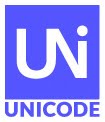![[Mayan Image]](https://cdn.statically.io/img/lh3.googleusercontent.com/blogger_img_proxy/AEn0k_u3o-4ETFBAp6ZgzZbXVQOBLWcL8vfd2GHvg9WGfpsQG7t2pr2UgsK2RV_bqEGfOQ3NpleCxVQkgzgPynIUhrVdiw7vpR53CjBEB8kLeg2xEdG1qthUig=s0-d)
The first grant of funds from Unicode’s
Adopt-a-Character program has been awarded to UC Berkeley’s
Script Encoding Initiative (SEI), for the first two phases of a project to include Mayan hieroglyphs as Unicode characters.
Thanks go to our
sponsors for providing funds to support this grant. Adopting a character helps the Unicode Consortium in its goal to
support the world’s languages.
Mayan hieroglyphs were used from 250 BCE until the 1500s. Mayan textual records include historical, literary, religious, and mythological information, as well as a sophisticated mathematical system on par with that of the Romans. Mayan astronomical records continue to capture the attention of astronomers today. Including Mayan hieroglyphs as Unicode characters will allow them to be used on computers around the world. See
more about Mayan.
Mayan is a complex script, requiring special support in layout and presentation. The first phase is a catalog and analysis of the Dresden codex, resulting in a draft set of Unicode atomic signs and composition mechanisms needed for full Mayan text. The second phase is based on that analysis: preparation of a proposal for layout and presentation mechanisms in Unicode text, using those atomic elements. These two phases are to be completed in 2017.
 The Adopt-a-Character
Program has awarded a grant to support development of proposals for
encoding the following three historic scripts in the Unicode Standard:
The Adopt-a-Character
Program has awarded a grant to support development of proposals for
encoding the following three historic scripts in the Unicode Standard:![[badge]](https://cdn.statically.io/img/lh3.googleusercontent.com/blogger_img_proxy/AEn0k_uZx3lzKEuxfNuOg3UNzdHZWI1x_9sduMtIVHBf85ayRPWRg_RrPib_shQpuXw0-blUQ3Hxd9hRQ_PTU-L4snS6V-Rf6mJ3Rum2dULhqIb92Mc-LYL9-o_s=s0-d)
![[badge]](https://cdn.statically.io/img/lh3.googleusercontent.com/blogger_img_proxy/AEn0k_uZx3lzKEuxfNuOg3UNzdHZWI1x_9sduMtIVHBf85ayRPWRg_RrPib_shQpuXw0-blUQ3Hxd9hRQ_PTU-L4snS6V-Rf6mJ3Rum2dULhqIb92Mc-LYL9-o_s=s0-d)

 The
The  The
The
![[Mayan Image]](https://cdn.statically.io/img/lh3.googleusercontent.com/blogger_img_proxy/AEn0k_u3o-4ETFBAp6ZgzZbXVQOBLWcL8vfd2GHvg9WGfpsQG7t2pr2UgsK2RV_bqEGfOQ3NpleCxVQkgzgPynIUhrVdiw7vpR53CjBEB8kLeg2xEdG1qthUig=s0-d)
 The Henry Luce Foundation has made a grant to the Unicode Consortium in
support of three meetings between Unicode specialists, experts, and user
communities in Mongolia and China. The meetings, which will take place from
2015 to 2017, will discuss encoding issues relating to specific scripts in
the region, such as Mongolian Square and Soyombo. The goal of the meetings
is to move the scripts forward in the encoding process, so scholars and the
relevant user communities will eventually be able to create, send, and
search materials in these scripts electronically. The project is headed by
Dr. Deborah Anderson, Technical Director of the Consortium, and Project
Leader of the UC Berkeley Script Encoding Initiative.
The Henry Luce Foundation has made a grant to the Unicode Consortium in
support of three meetings between Unicode specialists, experts, and user
communities in Mongolia and China. The meetings, which will take place from
2015 to 2017, will discuss encoding issues relating to specific scripts in
the region, such as Mongolian Square and Soyombo. The goal of the meetings
is to move the scripts forward in the encoding process, so scholars and the
relevant user communities will eventually be able to create, send, and
search materials in these scripts electronically. The project is headed by
Dr. Deborah Anderson, Technical Director of the Consortium, and Project
Leader of the UC Berkeley Script Encoding Initiative.

